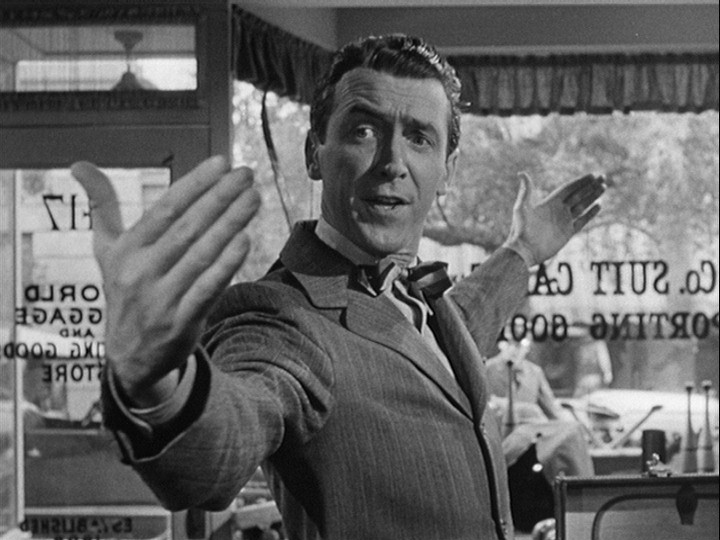48. It's a Wonderful Life
My 48th favourite film
begins a series of more predictable choices on my list. It’s a Wonderful Life is revered by many as their favourite film of
all-time, and it’s not difficult to understand why. It remains, arguably, the
most iconic ‘feel-good film’; a celebration of friends, family, faith and,
generally, life. Essentially a parable about the victory of Bailey over Potter,
spirituality over superficiality, life over death, of good over evil, it is a
monument to the spiritual reward of selflessness and patient perseverance, over
materialistic and consumerist values. George Bailey, played by the legendary
Jimmy Stewart, has had to deal with consistent failures and disappoints; he
couldn’t travel the world, he couldn’t go to college, losing his firm’s entire
savings, but his never-failing faith in humanity, even when he loses faith in
himself he never loses it in us, inspires us, the viewers, to be better people.
This is genuine inspiration, not some cheap sob-story. One of the modern
criticisms levelled at It’s a Wonderful
Life is that it encourages the traditionalist doctrines of the ‘American
small-town lifestyle’, and that it offers nothing but brain-washing
sentimentality, perhaps not helped by Frank Capra, the director, being
renowned, and by some, resented, for his own, perhaps deluded, optimism over
man’s qualities. I offer an antithesis; ‘there's never anything easy about making a film
where the central character is seriously considering suicide... "It's a
Wonderful Life" achieves a fine balancing act between pathos and feel-good
that is delivered by an outstanding cast.’[1] The morals of Capra’s classic
are traditionalist and old-fashioned, yes, but they are also extremely modern;
they are absolutely timeless. In a world concerned with the next Ipad app
entitled ‘YOLO’, it is never irrelevant to remind ourselves of the important
things in life, such as, for example, actually living. Funny, entertaining,
poignant and so, so moving, It’s a
Wonderful Life is the charismatic old angel here to remind a modern cinema
obsessed with exploiting our temptations and flaws, that man is inherently
good.
 |
| 'Woah. My handshh are huge Mary.' |
